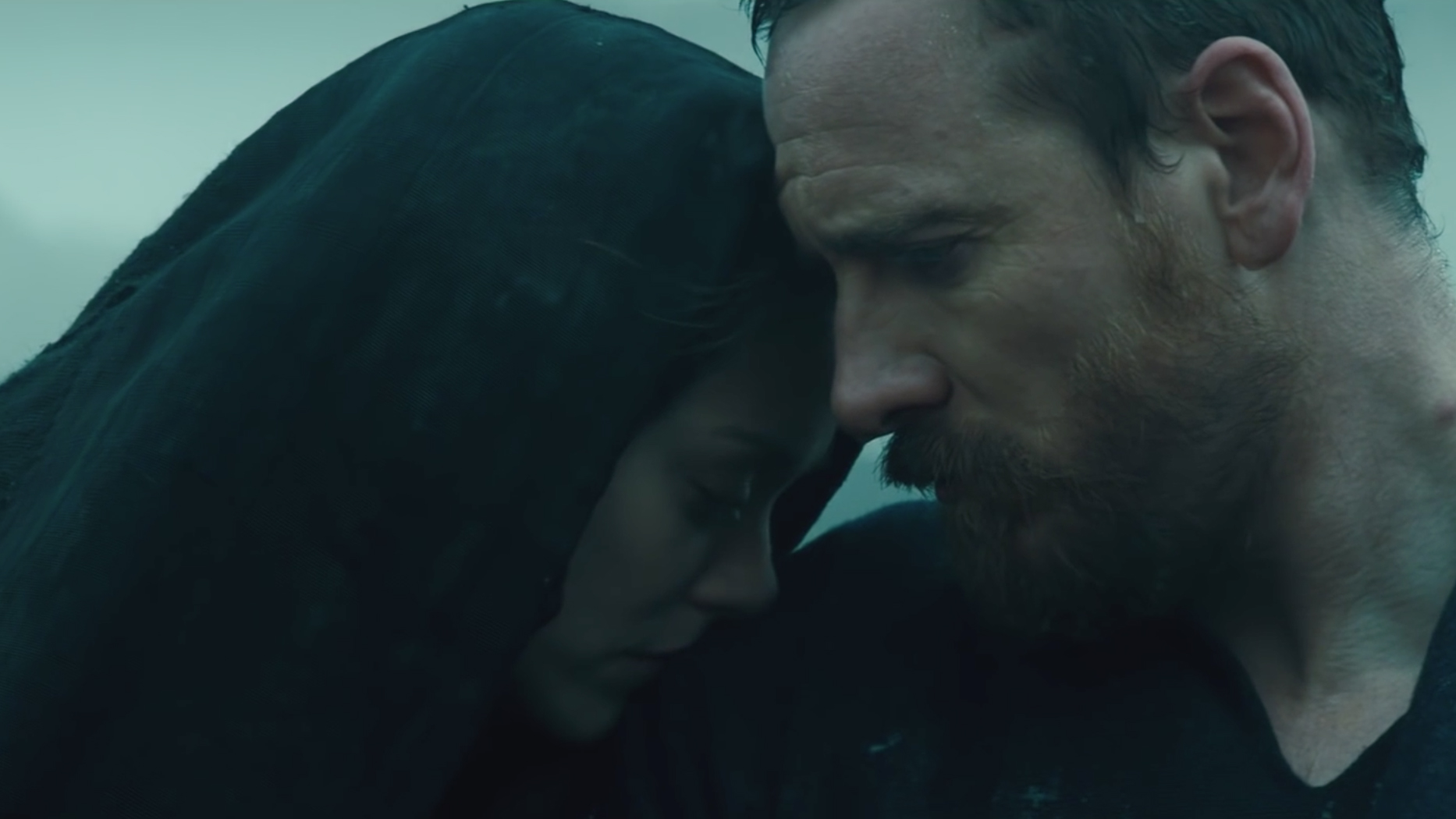It seems a bit ungrateful to complain about the quality of the source material when it comes to a Shakespeare adaptation, so I’ll let critic Mark Van Doren do it for me: “[Macbeth] gives us in the end somewhat less than the utmost that tragedy can give.” Its hero is “less valuable as a person than Othello, Hamlet, or Lear.” And Macbeth’s poetry is “concerned solely with sensation and catastrophe.” Van Doren also thinks the play is perfect, as it happens, but his criticisms still apply. The extent of Macbeth’s crimes and the poverty of his motives keep him from acquiring a broad relevance—except perhaps among despots—and the supporting characters do little to complicate his fundamental simplicity. We rarely see anyone through more than a single lens, and the themes of the play are similarly shallow.
All that being said, the play still has poetry, prophecy, dark machinations, and Lady Macbeth; and owing to its brevity, these attributes combine to make it, in retrospect, excellent material for a movie adaptation. I say “in retrospect” because it was only in seeing Jason Kurzel’s new film that this became clear. He took a short play and made it shorter, but beyond that there is very little here that readers won’t recognize from the page. The play has not been updated; all the powerhouse lines are still here; the witches still bewitch; and Macbeth ends his reign as he began it, covered in blood. But all of these familiar elements arrive with a shock that is entirely new. This is a Macbeth set in a medieval Scotland that feels quite true to Shakespeare’s vision (if inflected by a contemporary gothic-horror aesthetic), but the effect of this world is all the more convincing for its lack of apparent artifice.
https://www.youtube.com/watch?v=oyFAn5IaFS0
This is as true of the costumes and the score as it is of the performances and direction. Everything has been stripped down. The weird sisters have wrinkles at the bridges of their noses, rather than broomsticks, to indicate their other-worldliness, and through this simple uncanny tweak, all the ancient horror comes hurtling back. The Scottish warriors protect themselves in layers of fabric that hardly seem sufficient to protect them from the cold, let alone a striking sword—and that reminds us how utterly exposed they were in battle. The sound of their conflict, for its part, is intensified to the point that it becomes indistinguishable from the reverberations of the score. It is beautiful and terrifying in equal measure. And by reducing the number of lines borrowed from Shakespeare’s already propulsive play, we never lose the plot and never escape the feeling that Macbeth still lags several paces behind salvation. From the moment that the curtain rises, the curtain is falling down.
That metaphor is borrowed from the film itself, which, in a rare flourish, allows the blood-red title cards to scroll upward and become, for a moment, the rising curtain. And it rises on a battle scene of tremendous violence, with Macbeth both leading the clamorous charge and also standing apart. He’s eerily separate from the bloody extravagance, and, we suspect, reflecting on the cost of his impending triumph.
Michael Fassbender plays Macbeth as a desperate proto-tyrant whose unmooring precedes his villainy. He is a man born of war, and war’s urgency and desperation inform all of his actions. But this is the rare case where knowing the cause does little to assuage our anxiety. He remains a terror, and in some ways it seems that he is a terror even to himself.
The uncanny horror of Macbeth has been restored before anyone noticed it was even missing.
It’s impressive that both of the lead actors are able to convey this sense of self-alienation without losing a grip on the characters they portray. Marion Cotillard occupies a similar emotional plane to Fassbender, and her motivation seems to come from a similarly nihilistic place. Neither character can imagine a cost that would exceed the benefit of the power they jointly seek. The supporting cast is uniformly phenomenal—especially Sean Harris as rival MacDuff—but the movie relies heavily on Fassbender and Cotillard, as it should. When they recite their lines, there is no rush, but there is a tremendous amount of urgency. For them, the future cannot arrive soon enough, but with every fateful step new urgencies arise.
The streamlined nature of the script together with the ambient sense of menace pervading the film as a whole make the sprawling landscape of Macbeth’s Scotland seem terrifyingly small. Assassins lurk around every corner, witches appear only when you don’t want to see them, and the tragic end hurtles inevitably forward from the first frame to the last.
And while Macbeth cannot put a foot right, Kurzel, it seems, can’t put a foot wrong in documenting this tragedy. Macbeth is a play about power that uses power to make its point. It is direct, loud, and brutal, and so is the film. Kurzel’s stripped-down version of the script amplifies the play’s overall impact: the witches are scarier, Macbeth is more helpless, and the end comes faster, leaving us to deal with the fallout. The uncanny horror of Macbeth has been restored before anyone noticed it was even missing. And so while there may be (read: are, many) better Shakespearean plays, there are few better movies based upon them. Go get scared. FL









